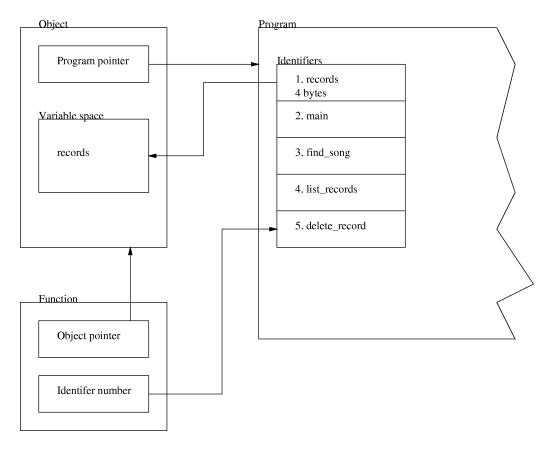
fig 4.6

In this example, the function bar returns a pointer to the function foo. No indexing is necessary since the function foo is located in the same object. The function gazonk simply calls foo. However, note that the word foo in that function is an expression returning a function pointer that is then called. To further illustrate this, foo has been replaced by bar() in the function teleledningsanka.int foo() { return 1; }
function bar() { return foo; }
int gazonk() { return foo(); }
int teleledningsanka() { return bar()(); }
For convenience, there is also a simple way to write a function inside another function. To do this you use the lambda keyword. The syntax is the same as for a normal function, except you write lambda instead of the function name:
The major difference is that this is an expression that can be used inside an other function. Example:lambda ( types ) { statements }
This is the same as the first two lines in the previous example, the keyword lambda allows you to write the function inside bar.function bar() { return lambda() { return 1; }; )
Note that unlike C++ and Java you can not use function overloading in Pike. This means that you cannot have one function called 'foo' which takes an integer argument and another function 'foo' which takes a float argument.
This is what you can do with a function pointer.